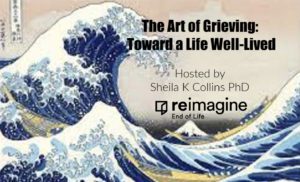 Life as we had been living it had disappeared. Sports suspended, schools closed, jobs lost, and social gatherings, and travel, postponed indefinitely. Even beauty salon and barbershop appointments were off our then, mostly vacant calendars. Unless your job was one of those deemed essential, and then you were risking your life, and perhaps the lives of your loved ones everyday as you served the larger community. Some tried new hobbies, others distracted themselves with television series reruns, or took on new assignments like home schooling their children, or learning to do their work in new ways, at home using on-line platforms. Eventually most all worship services and milestones like birthdays, graduations, and funerals were experienced through the tiny screens of our electronic devices. As the numbers of reported deaths climbed, through it all, hung the threat and anticipatory grief of possible death from the Covid19 virus pandemic.
Life as we had been living it had disappeared. Sports suspended, schools closed, jobs lost, and social gatherings, and travel, postponed indefinitely. Even beauty salon and barbershop appointments were off our then, mostly vacant calendars. Unless your job was one of those deemed essential, and then you were risking your life, and perhaps the lives of your loved ones everyday as you served the larger community. Some tried new hobbies, others distracted themselves with television series reruns, or took on new assignments like home schooling their children, or learning to do their work in new ways, at home using on-line platforms. Eventually most all worship services and milestones like birthdays, graduations, and funerals were experienced through the tiny screens of our electronic devices. As the numbers of reported deaths climbed, through it all, hung the threat and anticipatory grief of possible death from the Covid19 virus pandemic.So, for these and other reasons, as a nation we paid attention when we saw the video, repeatedly – of a black man, George Floyd, being murdered on the streets of Minneapolis by police officers, while bystanders pleaded with the officers to stop restricting his airways. His words, particularly the expression “I can’t breathe,” resonated in our often too short memory banks, reminding us that we had heard those words before. In fact, in way too many similar situations that resulted in the same outcome, the death of a black man at the hands of his captors.
This time however, the attention span of the public and the 24/7 news cycles of the media did not move on after a few days of public outrage and calls for justice for Black Americans. Stopped in our tracks by this atrocity, in horror at the insensitive responses of our president, we have been listening more deeply and learning more fully of the pattern of systemic racism that operates in all the institutions of our country. As young people of color, joined by people of all ages and races have taken to the streets to call for real change and a search for lasting solutions, –the undercurrent of this long-standing pandemic is being outed and confirmed.
Often in the past public opinion has focused on the property damage that sometimes accompanies lawful protests, and withheld support for actions demanded by “Black Anger.”
But, as Barbara Holmes, faculty member at The Center for Action and Contemplation suggests, “sometimes the anger of Black folks is resistance but, more often it is grief.” And the pain of this intergenerational grief calls those of us who are compassionate with its sufferers, to join Black Americans in taking actions that will end this pandemic. Healing Black Grief means changing the larger world and its practices so that this type of injustice ends here with this generation.
For a further exploration of this topic join us for the Art of Grieving: Towards a Well-Lived Lived Thursday June 11th at 7 pm Eastern on line at the Reimagine Festival Life, Loss and Love

Love to have you join us. Here’s the link to register

